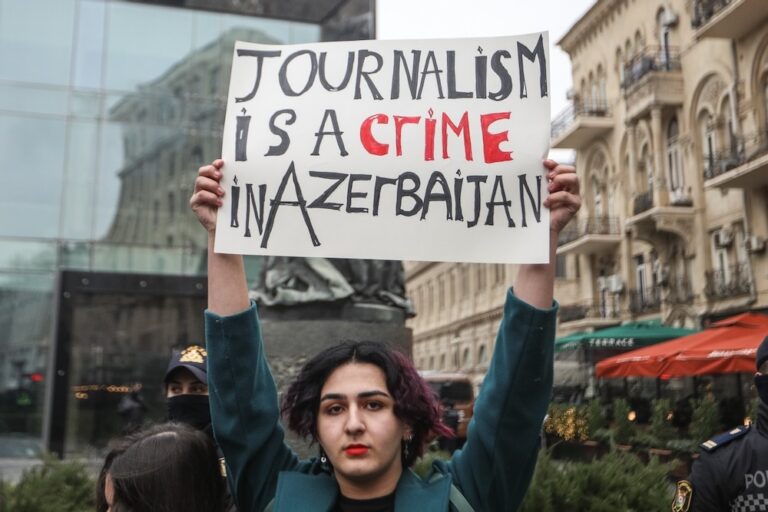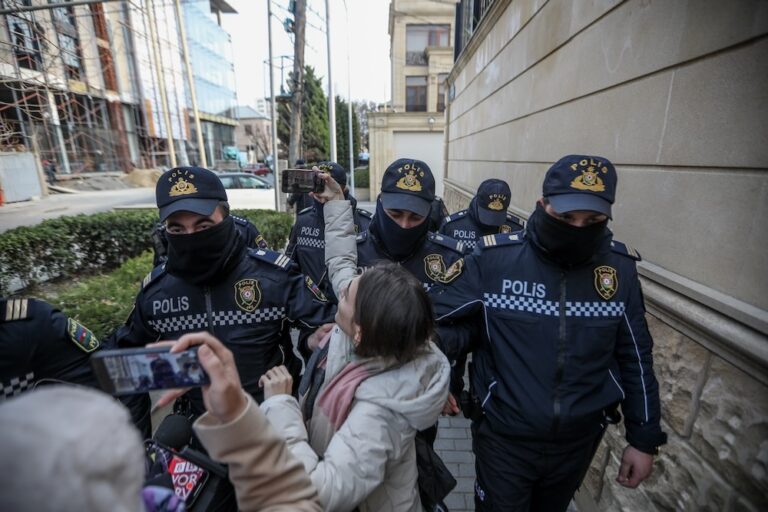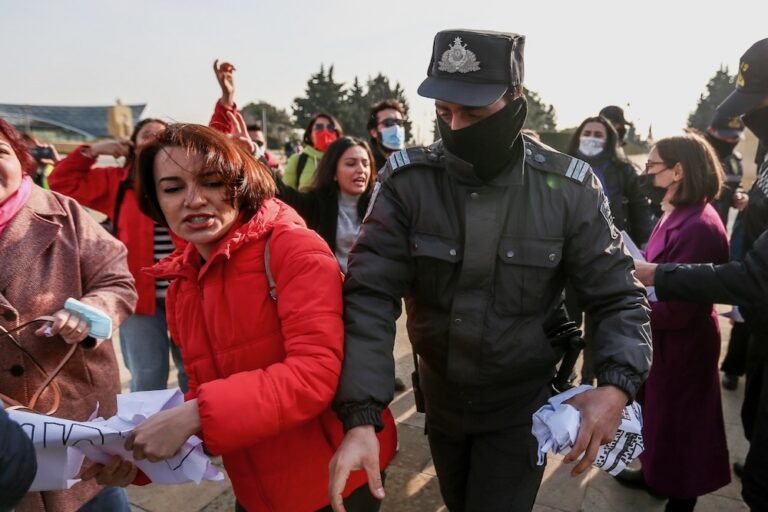Mukhtarli was sentenced to six years in prison on an absurd charge after being abducted and brought back by force from neighbouring Georgia in May 2017. His hunger strike is in protest against the arbitrary treatment that both he and his lawyer are receiving from the prison authorities.
This statement was originally published on rsf.org on 24 September 2019.
Reporters Without Borders (RSF) is extremely concerned about Afgan Mukhtarli, an imprisoned Azerbaijani journalist who has begun a hunger strike despite being diabetic. RSF holds the Azerbaijani authorities responsible for his fate and calls on the international community to press for his immediate release.
This well-known investigative journalist is in great danger because, although suffering from both diabetes and hypertension, he began a hunger strike on 22 September in protest against the arbitrary treatment that both he and his lawyer are receiving from the prison authorities.
“He is aware that this hunger strike is putting his life in danger,” his wife, Leyla Mustafayeva told RSF. “He has taken this decision despite everything because the judicial procedures offer him no hope.” The only response from the prison authorities to his hunger strike has been to place him in solitary confinement.
Mukhtarli was sentenced to six years in prison on an absurd charge after being abducted and brought back by force from self-imposed exile in neighbouring Georgia in May 2017. As if that were not enough, the prison authorities have done everything possible to cut him off from the world, limiting visits and appeals to the utmost and putting pressure on his fellow inmates.
Mukhtarli finally decided he could stand no more after his lawyer, Nemat Kerimli, was searched on entering Mukhtarli’s cell on 20 September and again on leaving, when prison officials demanded to see the notes he had taken during the meeting. Kerimli says that when he refused, the guards slammed him against a wall, grabbed his bag and locked him up for three quarters of an hour while they read his notes.
Kerimli had already been prevented from visiting Mukhtarli at the end of August. Mukhtarli suggests that this latest harassment could be a reprisal for the visits he received during the summer from two senior European officials. He is demanding an end to the impunity enjoyed by the prison staff, starting with the prison’s deputy director, Emin Aliyev.
“We are extremely concerned about Afgan Mukhtarli and we hold the Azerbaijani authorities responsible for his fate,” said Johann Bihr, the head of RSF’s Eastern Europe and Central Asia desk.
“From abduction in Georgia to harassment in prison, the injustice to which he is being subjected is intolerable. We call on the Azerbaijani government to release him as a matter of urgency, or else we will do everything possible to have international sanctions placed on everyone involved in persecuting him.”
Mukhtarli was kidnapped on 29 May 2017 in the Georgian capital, Tbilisi, where he had been living for three years, often writing about high-level government corruption in Azerbaijan. Against all evidence, the Azerbaijani authorities claimed that he was arrested with 10,000 euros in his pockets after entering Azerbaijan illegally. Georgia’s investigation into his abduction has not so far yielded any conclusive results.
Azerbaijan is ranked 166th out of 180 countries in RSF’s 2019 World Press Freedom Index. The leading critical media outlets have been silenced or have had to relocate abroad, the main independent websites are blocked and at least six journalists are currently in prison.



